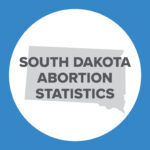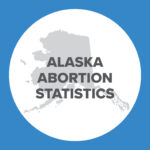Arizona Fetal Pain Law Blocked
A federal appeals court has temporarily blocked the enforcement of Arizona’s House Bill 2036, which was intended to go into effect today after much contentious debate. The new law bans abortions after 20 weeks gestation – four weeks earlier than previously permitted in the state – and it does so on the grounds that abortions done at that stage or later pose an increased risk to maternal health and inflict pain on the developing child in the womb.
This ruling comes on the heels of U.S. District Judge James Teilborg’s decision not to enjoin the new law. Instead Judge Teilborg found that the law does not violate the U.S. Constitution. The majority of states limit abortion to the first 24 weeks of pregnancy; between 22 and 24 weeks, according to medical authorities, the baby can potentially survive outside the womb.
Critics of the new law say that it places an undue burden on the mother of the unborn child—claiming that many fetal abnormalities are not detectable until the 20th week of pregnancy. Thus a woman who discovers at 20 weeks or beyond that her child has a genetic defect would not have the chance to end the child’s life. However, Judge Teilborg found, based on the evidence presented, that “[i]t would be extremely rare to find a condition that could be diagnosed after 20 weeks that could not have been diagnosed earlier.” He acknowledged that in very unique circumstances a diagnosis of fetal abnormality may not occur until after 20 weeks. It would be up to a woman in that situation to challenge the law for herself.
Attorney Julie Rikelman of the Center for Reproductive Justice commented after the initial decision, “If you’re a woman facing a complicated pregnancy and you’re suddenly needing to make a decision very quickly for what to do for yourself and your family, the last thing you have time for is to be rushed into getting a lawyer and rushing off to court to get an emergency order from the court that allows you to do what’s best for your health.”
The Maricopa County District Attorney, who defended the law before the hearing last week, countered that the law does in fact make exceptions for the life of the mother and serious threats to her health.
One immediate effect of that ruling has been to put new attention on alternatives to abortion when the developing child has a serious or even lethal anomaly.
While some may argue that aborting the child spares the baby and the family physical and emotional pain, there is considerable evidence to the contrary. More and more disabled people are reporting a better quality of life. For example, 99% of adults with Down syndrome claim to be happy with their lives, according to the American Journal of Medical Genetics. A majority of parents with Down syndrome report a positive outlook on life while those with siblings with Down’s claim to have become better people for it.
A recent report from the Charlotte Lozier Institute also indicates that, for those cases where the child is not expected to live long after birth, there are emotional benefits for the mother who is supported in deciding to carry her baby to term. She is given the chance to be a parent to her child for as long as he or she lives and to grieve for her baby when he or she dies.
Additionally, while the desire to preserve the unborn child from pain is admirable, abortion is definitely not the solution to that problem. As Judge Teilborg noted in his decision, “By 20 weeks, sensory receptors develop all over the child’s body” and “when provoked by painful stimuli, such as a needle, the child reacts, as measured by increases in the child’s stress hormones, heart rate, and blood pressure.”
A spokeswoman for Arizona Attorney General Tom Horne called the appellate court’s decision “unfortunate.”
Arizona’s new law seeks to protect life and preserve dignity for all, regardless of their respective abilities or disabilities, and its enforcement should be vigorously supported. This law is a step forward in creating a society where the intrinsic value of all human life is recognized and respected. The aim is to protect the most vulnerable members of society and prevent them from being condemned to an early and violent death.























